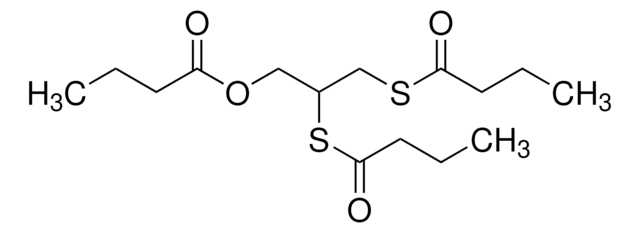D7881
meso-2,3-Dimercaptosuccinic acid
~98%
Synonym(s):
2,3-Dithio-meso-tartaric acid, DIM-SA, DMS, DMSA, Succimer
About This Item
Recommended Products
Assay
~98%
Quality Level
form
powder
mp
196-198 °C (dec.) (lit.)
storage temp.
−20°C
SMILES string
OC(=O)[C@@H](S)[C@@H](S)C(O)=O
InChI
1S/C4H6O4S2/c5-3(6)1(9)2(10)4(7)8/h1-2,9-10H,(H,5,6)(H,7,8)/t1-,2+
InChI key
ACTRVOBWPAIOHC-XIXRPRMCSA-N
Looking for similar products? Visit Product Comparison Guide
Application
It can be used:
- As a reducing and stabilizing agent to synthesize monolayer-protected gold clusters.
- For terminal carboxylation of the oleylamine coated Fe3O4 nanoparticles, to develop targeted curcumin drug delivery system.
Storage Class Code
11 - Combustible Solids
WGK
WGK 2
Flash Point(F)
Not applicable
Flash Point(C)
Not applicable
Personal Protective Equipment
Choose from one of the most recent versions:
Certificates of Analysis (COA)
Don't see the Right Version?
If you require a particular version, you can look up a specific certificate by the Lot or Batch number.
Already Own This Product?
Find documentation for the products that you have recently purchased in the Document Library.
Customers Also Viewed
Our team of scientists has experience in all areas of research including Life Science, Material Science, Chemical Synthesis, Chromatography, Analytical and many others.
Contact Technical Service










